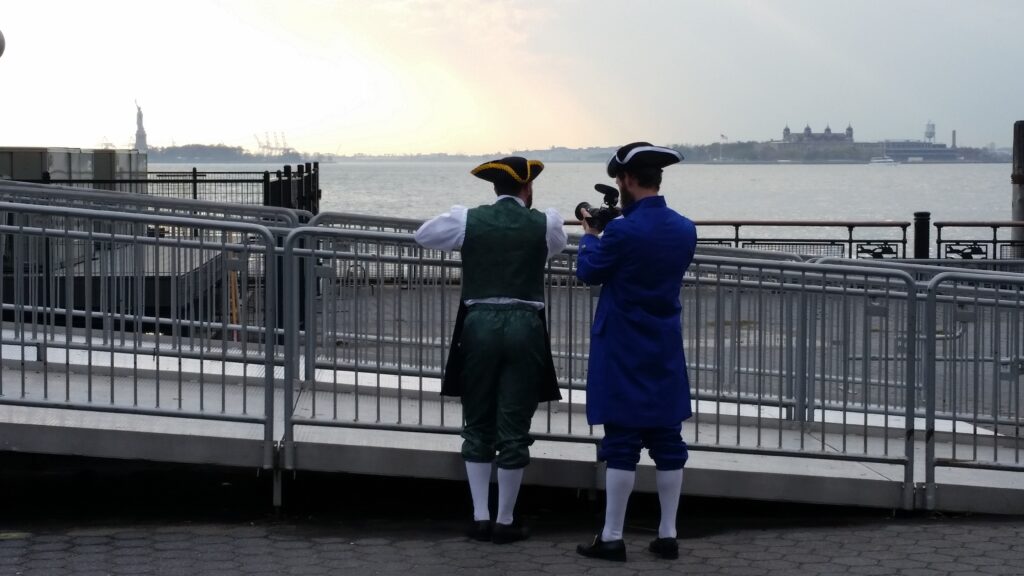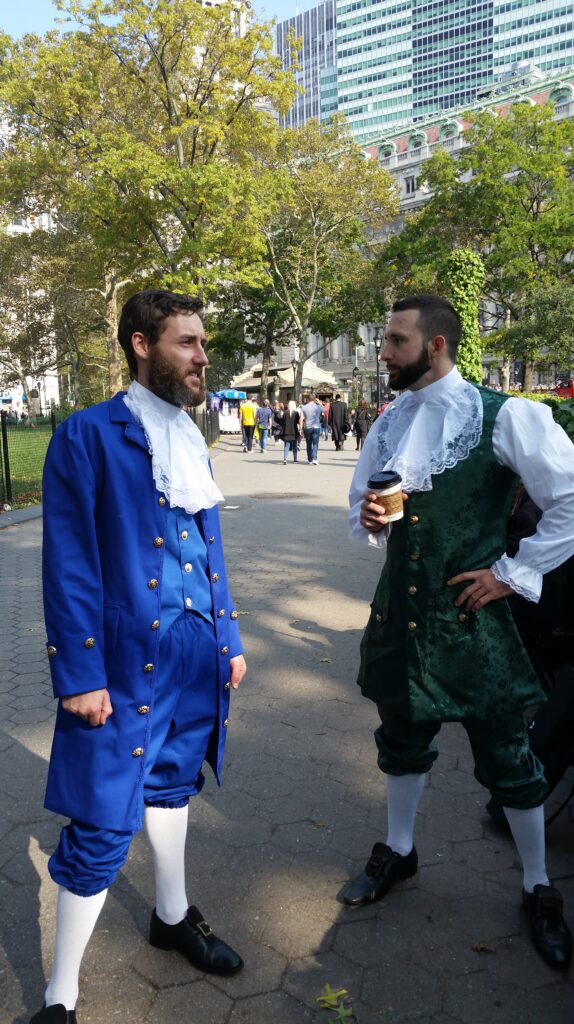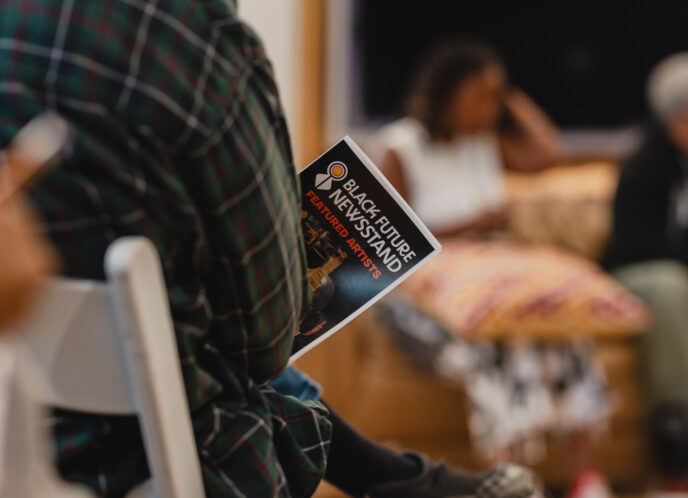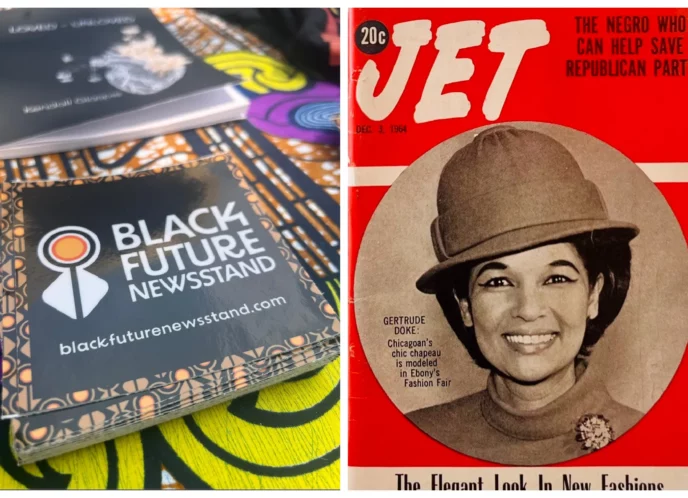In this guest blog, MediaJustice Network member and comrade Erick Boustead (formerly of Line Break Media) reflects on being connected to the broader MediaJustice community and how it has inspired their subversive use of art, media and culture to highlight injustice and better imagine the new world we are building toward.
April 15, 2014. I attended a daylong cultureSHIFT Academy workshop co-led by MediaJustice and RaceForward. I was there as co-director of Line Break, a member of the MediaJustice Network. This was three years after I was introduced to the media justice community after attending a Place Stories training in Minneapolis led by Steven Renderos (current MediaJustice Executive Director) who was the Media Justice Organizer for Main Street Project at the time. This was all shortly before co-founding Line Break Media with Nolan Morice in 2011, which Steven became an advisor for to help us get plugged in to the movement locally and nationally. Our other initial advisors included Valerie Martinez who introduced me to Steven and Eleonore Wesserle who also became a cooperative member before starting her own venture, Dreams to Power. Little did I know that I was being led toward a path of my own personal liberation and a political home where I would premiere a personal project that the MediaJustice Network enabled me to create.
Until I attended the cultureSHIFT Academy, my presence in movement spaces was to document. To elicit stories in ways that would galvanize and expand the base. To make sure the framing through the camera was just right. And it has been an incredible honor and blessing to serve in this capacity.
On this day, however, I was fortunate to attend as a fully engaged participant – alongside all of the other organizers and artists in the space. In a breakout, we were invited to share the elements of our personal narrative. My reflex was to tune out for this exercise, as it was not my usual role to share my own experience or interpretation of the world. But I gave it a try. I thought about my prior life of drumming in punk bands and the skate culture I grew up in, though I primarily ended up doodling and tapping my pencil until reconvening, with the questions lingering about how I might explore my own story more.
Around this time a budding friendship was emerging with Teresa Basilio (current MediaJustice Network Strategies Director) who I met through workshops led by her and fellow Global Action Project leaders. We realized at an activist happy hour one night that not only did we share a lamenting angst towards the system, but that we also shared a reverence for punk rock and anti-imperial struggle.
I’d begun researching more about the roots of white supremacy and patriarchy and capitalism – primarily through Sylvia Federici’s “Caliban and the Witch”, Roxanne Dunbar Ortiz’s “Indigenous Peoples History of the United States”, Joe Torres and Juan González’s “News for all the People” and bell hooks – while also spending a fair amount of time reflecting on my own conditioning. This led to initiating a narrative project, more recently titled “White Vinegar,” to explore my relationship to all this, inspired by the visionary fiction framework developed by Walidah Imarisha and adrienne maree brown and put into practice through the Octavia’s Brood anthology. Teresa was an enthusiastic supporter and advisor as the story developed into a surrealist series featuring two colonial operatives John and James, managing surveillance and propaganda respectively for the state, who had been immortalized in the 1600’s and are still laboring to maintain the hegemony of whiteness and American supremacy.
I was able to continue growing my understanding of the role of subversive cultural production through co-facilitating the Arts and Culture Cohort of the MediaJustice Network with Betty Yu and Sage Crump, producing webinars and a workshop at the Allied Media Conference. This aided me in seeing just how powerful incorporating the full range of theatre and film into movement contexts can be for recontexualizing harmful forces and embodying what other worlds could be. Insights gained through the network about surveillance tech and media analysis also helped inform the world building and character development of White Vinegar, and Teresa and I had some great fun picking out wardrobe and testing it out on tourists in Battery Park.
Fast forward through acting and writing workshops and several rounds of script drafts and rehearsals, all while combatting our violent system through direct movement media work, I produced a series of short videos and complementary photo sets that I now see as one layer of “my story”. The result of being encouraged and supported to go deep down into the depths of subconscious space, of conditioning I was afraid to face, and also of forward stancing through it all. I also have my former partner Nadia Mohamed to thank – who I also met through a media justice excursion to the National Conference on Media Reform in 2011 – for helping me incorporate joy and playful self-love at every step. All of this led to presenting White Vinegar to the network at a celebratory virtual gathering alongside several other network artists.
The Network gathering, aptly named Joy Jubilee, “celebrating our collective power, resilience, and talents”, took place on August 5, 2020 and consisted of ~80 participants from across the media justice movement. Of course, my power and internet were out from a massive storm that hit a couple days before, so my dogmate Orion and I ended up joining from our car where we could get signal. It was quite the affair with custom zoom backgrounds and attendees donning some extra fabulous quarantine party outfits. It was so necessary, and so nourishing.
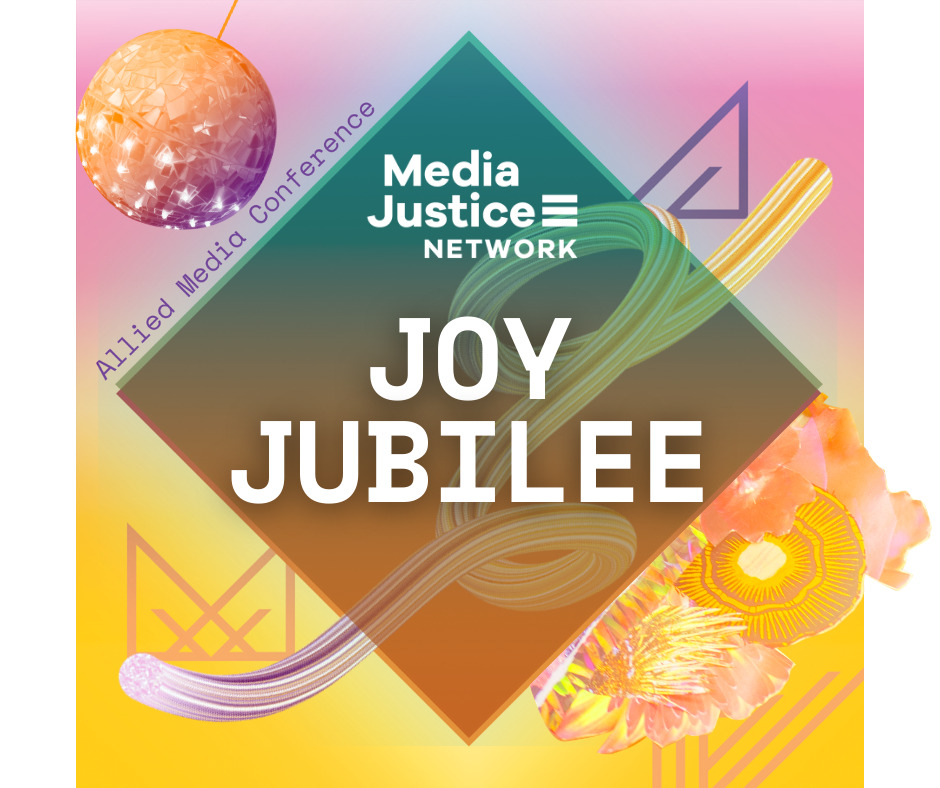
On August 5, the MediaJustice Network held Joy Jubilee to celebrate our collective power, resilience and talent across the media justice community. 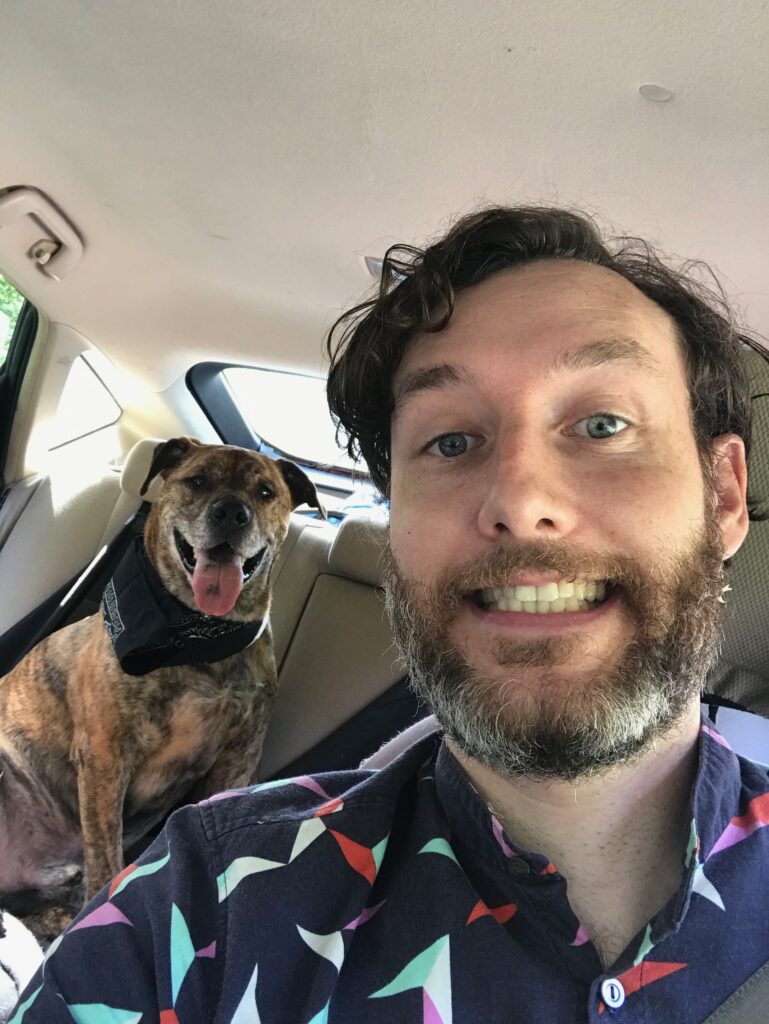
Erick and Orion tuning in to the Joy Jubilee celebration.
The Joy Jubilee‘s MC, Brandi Augustus from Highlander Center, had us weary travelers of justice laughing and crying and clapping throughout the showcase of art and performances that kicked off with the epic “Liberation” music video by Global Action Project, and was followed by poetry and short films from several other members. I was quite nervous sharing the virtual stage with such a stellar crew, yet eager to see how the network would respond.
I was thrilled to see attendees picking up on the subtle and not-so-subtle commentary on theft, enclosure, white dude dynamics, and more theft. And I was relieved that it was accompanied by a fair amount of laughter.
We only had time to screen the video portion, included below, though the complementary photo sets can also be viewed here.
At the end of the event, MediaJustice held a ceremony to distribute annual SPOT Awards. Nolan and I had the honor of receiving an award for our work with Line Break. It was doubly meaningful to receive this honor during the same event as the online premiere of “White Vinegar”, as I also used this opportunity to announce a big life update. Heading into the fall, I am transitioning out of my role at Line Break to pursue an MA in Irish Studies: Literature & History at the National University of Ireland Galway, where I will focus on exploring the relationship between Irish American and Irish identity through the lenses of colonization, migration, culture and land and body.
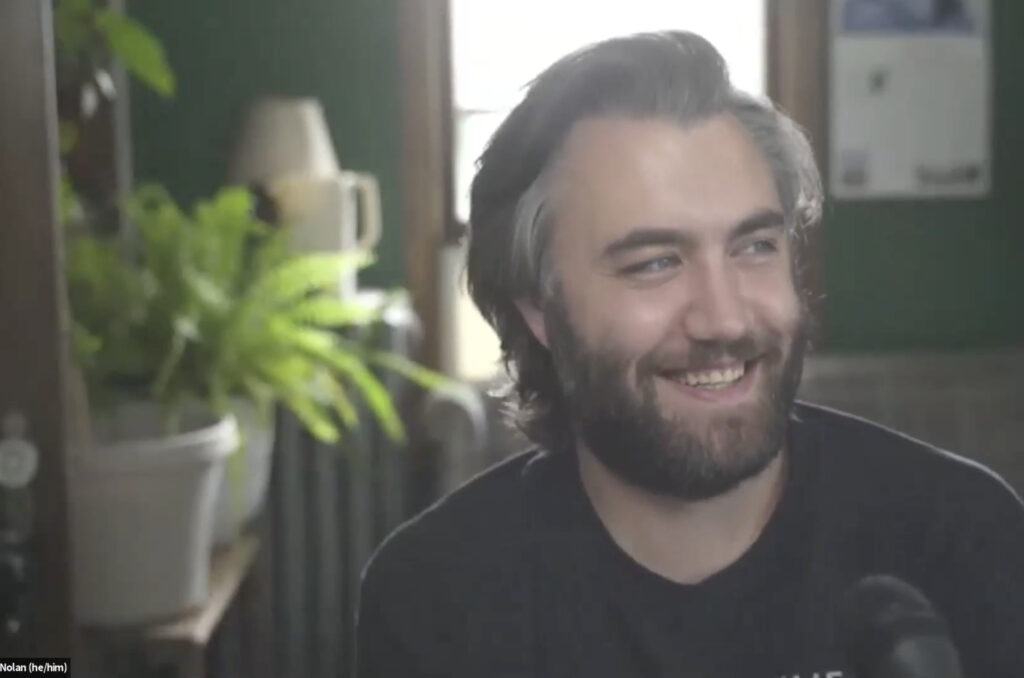
Nolan Morice of Line Break Media accepting a SPOT award during the MediaJustice Network Joy Jubilee gathering. 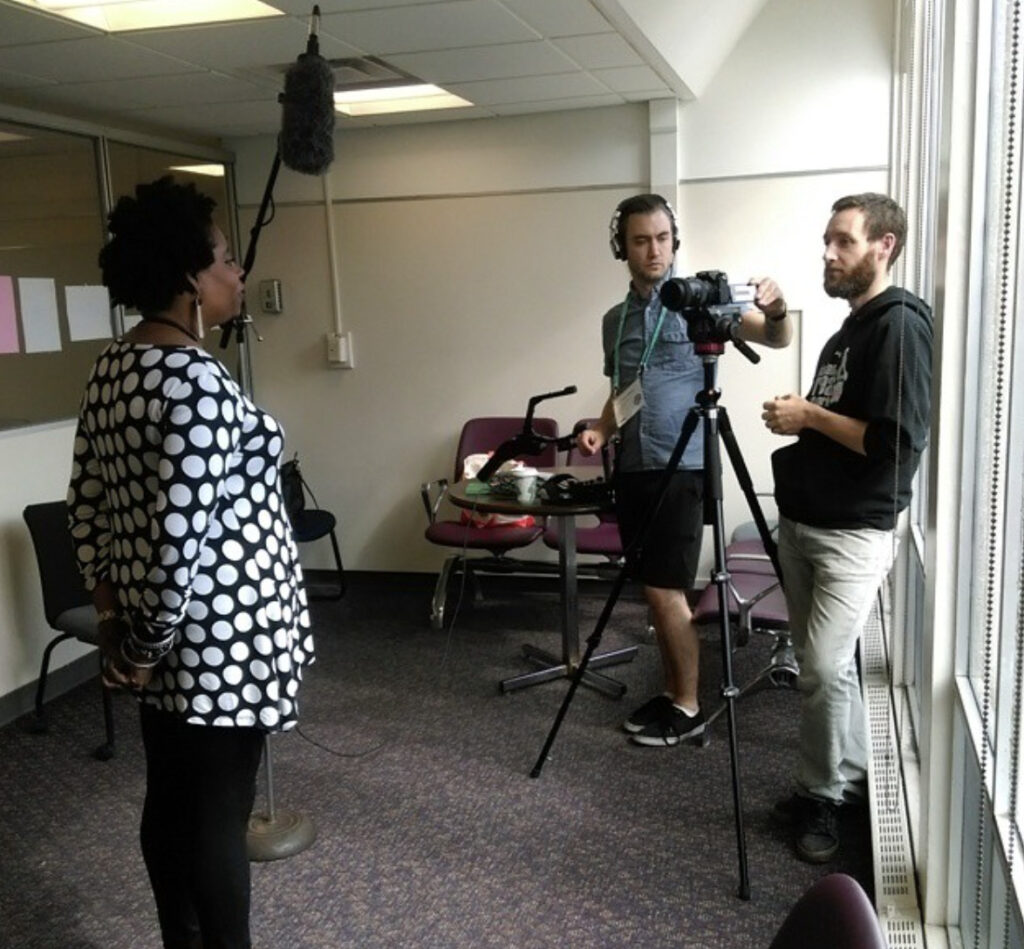
A throwback image of Line Break Media interviewing Voices for Racial Justice during the 2015 Allied Media Conference.
As we continue on through this epicly, tumultuous time, I cherish the growth and relationships made through being engaged in the media justice community. From fighting for the ability to connect safely online together, to affordable ways for loved ones to stay connected inside and outside our archaic systems of punishment, to honoring the creative capacity in everyone, I look forward to continuing to witness this work toward liberation flourish.

